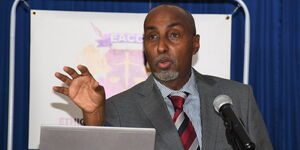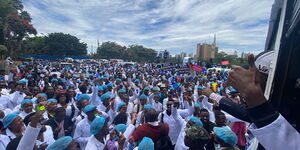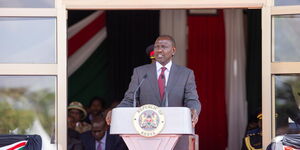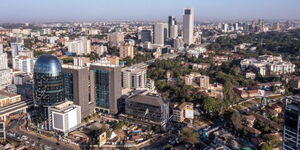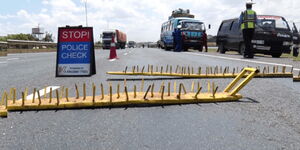The Office of the Director of Public Prosecutions has responded to public outrage concerning the recent increase in terrorism charges brought against protesters.
In a press statement released on July 21, the office reiterated that the charges were lawful under the Prevention of Terrorism Act.
"The Office of the Director of Public Prosecutions (ODPP) acknowledges the ongoing national discourse sparked by recent legal actions following the events of 25th June 2025 and 7th July 2025," the statement read.
Although ODPP acknowledged the role of free speech and a "vibrant civil society", it emphasised that both needed to understand the framework of the Act, instead of interpreting it as efforts to suppress legitimate political expression.
ODPP further claimed that the suspects charged with terrorism had been accused of grave conduct that not only elicited fear but also threatened to cripple government operations.
Furthermore, these attacks on public offices, courts, police stations, and government personnel were not spontaneous
demonstrations, but calculated and coordinated acts of violence, according to the DPP.
"These incidents aimed to cripple essential government operations, instil fear, and erode public trust in democratic institutions," the statement read.
In addition to the Act, ODPP cited remarks made by Chief Justice Martha Koome, June 26, after inspecting the damage at the Kikuyu Law Courts, terming it as "not merely an act perpetrated by criminal elements but an act of terrorism".
"Under Sections 2 and 4 of the Prevention of Terrorism Act, such actions qualify as acts of terrorism when intended to cause serious disruption of essential services, intimidate the public or government, or create widespread fear through targeted destruction," ODPP stated.
As such, the office concluded that it was aware of the public concerns regarding the potential misuse of terrorism legislation but maintained that all charges had been brought strictly based on the available evidence.
"Each accused individual will be accorded a fair trial, legal representation, and full access to due process in line with the Bill of Rights under the Constitution of Kenya," the statement concluded.
Since the June 25 commemorative protests, dozens of Kenyans have been charged with terrorism, starting with 37 suspects arrested on suspicion of torching the Kikuyu Law Courts and other government infrastructure during the June 25 protest.
Eight more were charged with terrorism a few days later, after torching buildings at the Mawego Police Station, where slain teacher Albert Ojwang had been held briefly before being transported to Central Police Station in Nairobi.
Recently, when popular activist Boniface Mwangi was arrested on Saturday, the Directorate of Criminal Investigations (DCI) alluded that he would be charged with facilitating terrorism, an assertion that further heightened the public uproar over the recent uptick in terrorism charges.
Ultimately, Mwangi was charged with two counts of possession of ammunition and released on a personal bond of Ksh1 million.

